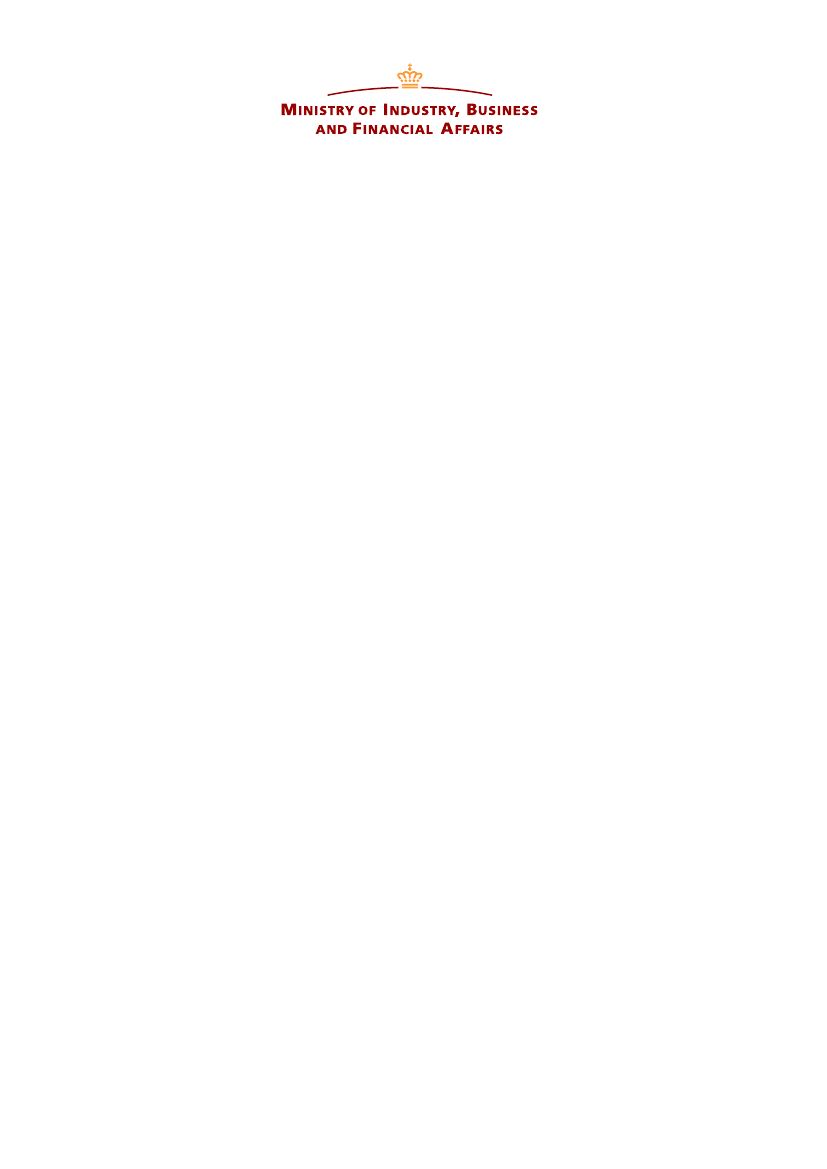
MINISTER FOR INDUSTRY,
BUSINESS AND FINANCIAL
AFFAIRS
Danish comments to the Commission’s draft Clean Industrial State
Aid Framework (CISAF)
The Danish Government thanks the Commission for its efforts to draft a
new State aid regulation that builds on the experiences gained from the
Temporary Crisis and Transition Framework (TCTF), ensuring predictabil-
ity for both Member States and possible beneficiaries with temporary rules
with a longer duration than the TCTF. However, the Commission should
continuously and over the entire period monitor whether there is a need for
these temporary rules.
EU State aid rules are an important part of the regulation of the internal
market and help to ensure free and fair competition. The Danish Govern-
ment
supports effective and transparent control of State aid to ensure a level
playing field and an efficient use of taxpayers’ money.
In the geopolitical reality we are facing currently, a more robust European
competitiveness and economic security approach is crucial to maintain
prosperity and strategic autonomy in the EU. This is highlighted in the re-
ports by Enrico Letta and Mario Draghi, which put forward a number of
recommendations for improving European competitiveness with a focus on
improving innovation capacity, mobilising private investment, a strength-
ened internal market, lower energy prices, strengthened resilience and tech-
nological leadership in key strategic sectors.
To achieve this, the EU must look at all available means. Mobilising private
investments is crucial. Using State aid to promote European competitive-
ness is also part of the toolbox, although it can never stand alone and must
be accompanied by national reforms to strengthen productivity and growth.
Generally, Denmark supports the possibility of State aid measures when
targeted critical sectors or technology with a clear strategic purpose and
where there is a documented need. Denmark supports that State aid in the
current geopolitical situation can be used to ensure that investments in crit-
ical or strategic sectors for the green transition are not systematically di-
rected outside the European Union.
MINISTRY OF INDUSTRY,
BUSINESS AND FINANCIAL
AFFAIRS
Slotsholmsgade 10-12
1216 Copenhagen K
Denmark
Tlf.
+45 33 92 33 50
Fax.
+45 33 12 37 78
CVR-nr. 10092485
EAN nr. 5798000026001
www.em.dk